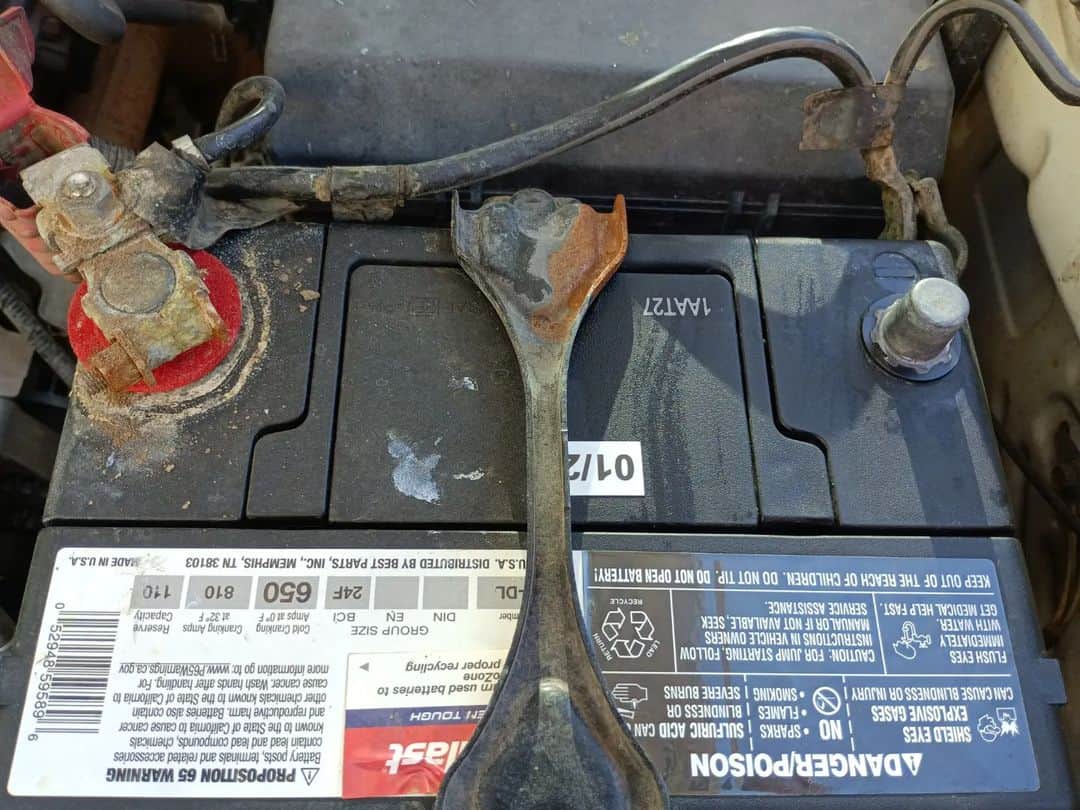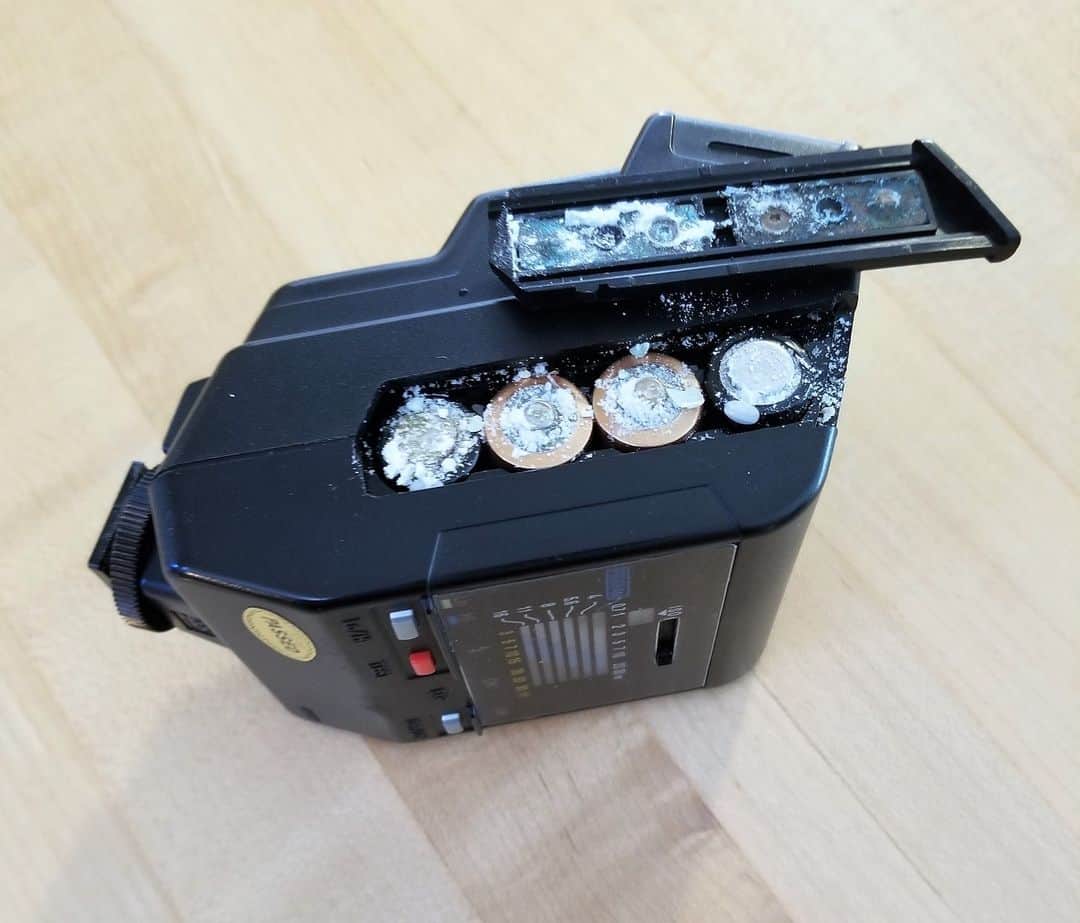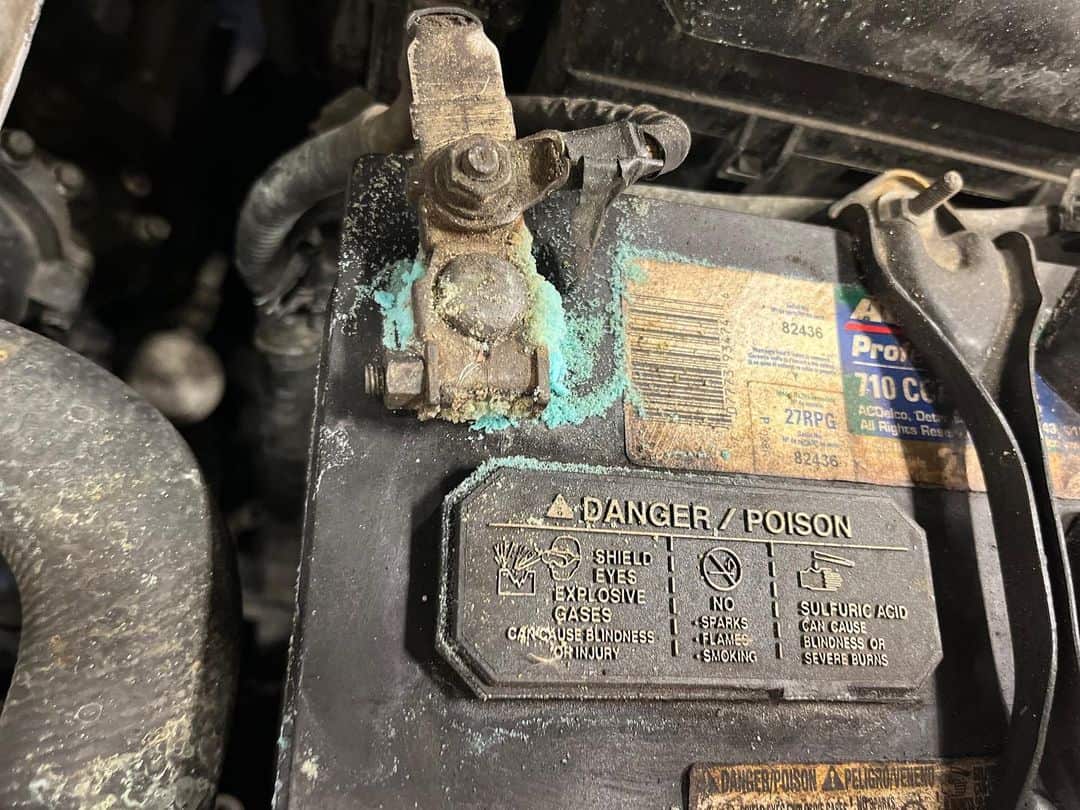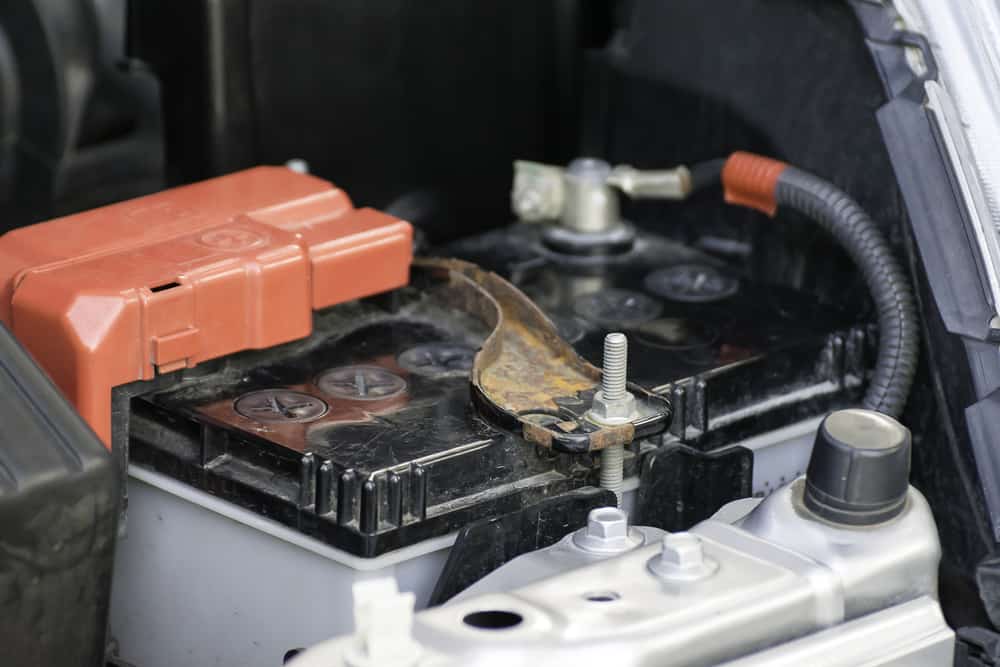Are you having trouble with your electronic devices not holding a charge or turning on? The problem may be with the battery contacts. Rust on battery contacts can cause poor connectivity and even prevent your device from functioning.
Good news! You don’t have to trash your device just yet. Cleaning rusted battery contacts can be done in minutes.
This article will teach you how to clean and maintain the battery contacts of any device that uses disposable batteries so you can keep them running until they finally die.
Table of Contents
What Causes Rusted Battery Contacts
Rusted battery contacts occur when the metal terminals of a battery come into contact with moisture, causing the formation of rust.
This can happen in several ways, including exposure to humid air, exposure to rain or other sources of water, or even condensation that forms on the terminals as a result of temperature changes.
The process of rusting, also known as corrosion, is caused by the reaction of the metal terminals with oxygen and water.
When the metal terminals come into contact with water, the water molecules react with the metal, breaking down the surface of the terminals and causing rust to form. The rust can then spread, further damaging the terminals and making it difficult for the battery to function properly.
Other causes include:
- Acidic Substances: Many batteries, including car batteries, contain sulfuric acid, which is an acidic substance that can speed up the corrosion process. The sulfuric acid can cause chemical reactions with the metal terminals, breaking down the surface of the metal and making it more susceptible to rust.
- High Temperatures: High temperatures can cause the water molecules on the surface of the battery terminals to evaporate more quickly, leading to a higher concentration of dissolved oxygen on the surface of the metal. This can increase the rate of corrosion and the formation of rust.
- Age: As batteries age, they can become more prone to rusting. This is because the metal in the contacts may begin to degrade over time, making it more susceptible to rust formation. Additionally, the seals on the old battery may begin to degrade, allowing moisture to penetrate the battery and cause rusting.
- Lack of Maintenance: If battery contacts are not cleaned and maintained regularly, dirt and grime can build up on them. This can lead to rust formation, as well as the decreased performance of the battery.

Step by Step Guide on How to Clean Rusted Battery Contacts
Materials Needed
- White vinegar or lemon juice. (a mixture of equal parts water and baking soda can be used as a substitute.)
- Steel wool or an old toothbrush.
- Q-tips or small brush.
- Isopropyl alcohol or Rubbing alcohol.
Step 1: Remove the Battery
- Take the battery out of the device it is in. Be sure to note which way the battery goes in, as well as any locking mechanisms or other details that will help you put the battery back in correctly.
Step 2: Mix a Cleaning Solution
- Mix a solution of equal parts white vinegar and baking soda in a small bowl. This solution will help to break down the rust on the contacts and make them easier to clean.
Step 3: Apply the Solution
- Dip the toothbrush or small brush into the cleaning solution and gently scrub the battery contacts. Be sure to clean both the positive and negative contacts.
- If the contacts are heavily corroded, you may need to use fine sandpaper to remove the rust before cleaning them with vinegar and baking soda solution. But, again, be gentle, as you don’t want to damage the contacts.
Step 4: Rinse the Contacts
- Use a clean cloth to clean the contacts, then rinse them with water. This will remove any remaining rust or cleaning solution.

Step 5: Dry the Contacts
- Use a clean, dry cloth to dry the contacts completely. Always ensure the contacts are completely dry before reinserting the battery, as any moisture can cause further corrosion.
Step 6: Reinstall the Battery
- Once the contacts are clean and dry, reinsert the battery into the device. Ensure the battery is inserted in the correct orientation and that any locking mechanisms are securely in place.
Step 7: Test the Device
- Turn it on to ensure it is working properly. If the device doesn’t turn on, or if you notice any other issues, double-check that the battery is properly installed and try again.
Note: Be cautious while cleaning heavily corroded batteries, as they may be damaged and should not be used anymore.
Safety Measures to Take While Cleaning Battery Contacts
- Wear gloves: When cleaning battery contacts, gloves are important to protect your skin from coming into contact with the battery acid.
- Work in a well-ventilated area: Batteries can release harmful gases when cleaned, so it’s important to work in a well-ventilated area to ensure that you don’t inhale any dangerous fumes.
- Avoid fire: Be careful not to let the cleaning solution come into contact with any heat sources or open flames to avoid a fire hazard.
- Keep out of reach of children and pets: Keep the cleaning materials and batteries out of reach of children and pets. They can be harmful if ingested or handled improperly.
- Be cautious with corroded batteries: Be cautious when handling heavily corroded batteries. They may be damaged and should not be used anymore.
It’s important to follow these safety measures to ensure the safety of yourself and the environment.
Common Issues Faced While Cleaning Rusted Battery Contacts
1. Difficulty Removing Rust
Rust can be particularly stubborn and difficult to remove, and you may require a stronger solution or a more abrasive material. Vinegar is a great natural solution, but if that doesn’t do the trick, then you may want to try using a commercial rust-removing product.
You can also use steel wool to scrub away the rust. However, be aware that it may cause scratches or damage to the surface.

2. Damaged Contacts
If the contacts appear to be severely damaged, and cleaning doesn’t help, replacing the battery or the entire device may be necessary. It’s not always an ideal outcome, but sometimes it’s the best way to ensure the proper functioning of your device. Check your device’s warranty information to see what kind of coverage you have in case of a malfunction.
3. Battery Leak
If there is any leakage from the battery, don’t attempt to clean it. Instead, you should dispose of the battery properly, as it can be dangerous. We strongly advise that you take the battery to a local recycling center in order to ensure that it is safely disposed of.
If you don’t have access to a recycling center, make sure to contact your local waste management team to find out the proper measures for disposing of the battery.
How to Prevent Corrosion From Forming on Battery Contacts in the Future
- Store batteries in a cool and dry place: High humidity and extreme temperatures can accelerate the rusting process. Keep batteries in a cool, dry place, such as a pantry or a cabinet, to prolong their life and prevent rust from forming.
- Keep the battery compartment clean and free of debris: Debris and dust can accumulate inside the compartment, creating an environment conducive to rust. Keep the battery compartment clean and free of debris by wiping it down with a dry cloth.
- Remove the battery from the device when not in use: If you know you won’t be using a device for an extended period, remove the battery to prevent rust from forming.
- Avoid exposing the battery to extreme temperatures or humidity: Exposure to extreme temperatures or humidity can accelerate the rusting process. Keep batteries away from sources of heat and moisture to prevent rust from forming.
- Store batteries in their original packaging or labeled containers to help to protect them from humidity and dust.
- Keep batteries away from metal objects, such as keys or coins, to prevent short-circuiting, which can cause rust to form on the contacts.
- Rotate your stock of batteries to ensure they are used before their expiration date: Rotating your stock of batteries will help you use them before they expire, preventing rust from forming on the contacts.
Conclusion
Learning how to clean rusted battery contacts can help you get your electronics up and running again quickly and easily. This simple process only requires you to have a few basic tools and materials on hand.
It’s an easy task that anyone with just a bit of technical know-how can tackle. So don’t put off getting your device back in working order
To recap, here are the action steps you need to take to clean rusted battery contacts:
- Use materials like white vinegar, baking soda, steel wool, or a toothbrush
- Take preventative measures such as storing batteries in a cool and dry place, keeping the battery compartment clean, and removing the battery when not used.
- Troubleshoot any issues you may encounter while cleaning rusted battery contacts.
We hope this guide has helped solve your battery contact rust problem. If you have any questions or additional tips, please feel free to comment below.
